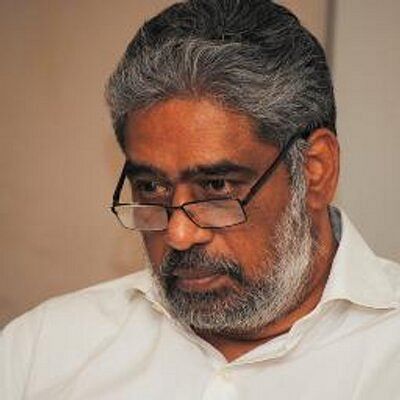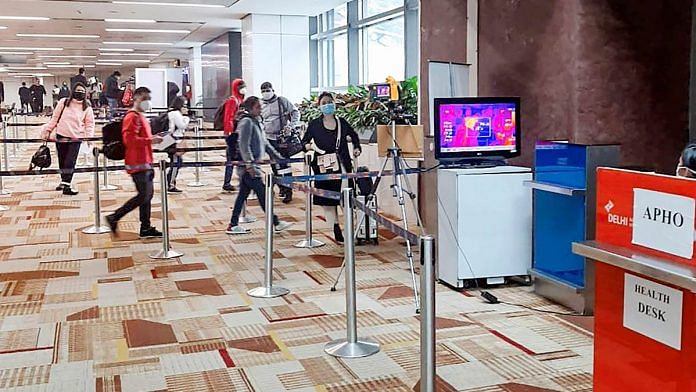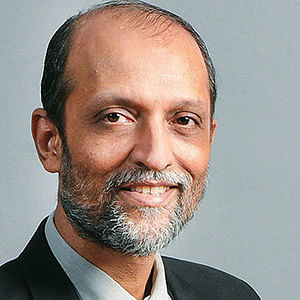The prospect of an oil stimulus in the time of Covid-19
Ajit Ranade | Economist and senior fellow at The Takshashila Institution
Mint
Ranade discusses the oil price war between the US, Saudi Arabia and Russia. He explains that it is “a proxy manifestation of a geopolitical showdown in West Asia between a Russia-Iran alliance and a US-Saudi one”. He also explains how India can take advantage of the “implied fiscal stimulus of a fall in oil prices”.

Coronavirus outbreak highlights China’s dominance over pharmaceutical industry
Raja Mohan | Director, Institute of South Asian Studies, National University of Singapore
The Indian Express
Mohan refers to the pharmaceutical manufacturing crisis following the coronavirus outbreak in China and argues that “the slowdown in Chinese manufacturing has disrupted the supply chains of many goods, the impact on the drug industry has helped highlight the national security implications of China’s dominance over the pharmaceutical industry”. He argues that China can potentially weaponise “its dominance over pharmaceutical production and its massive consequences for healthcare in the US” like it weaponised rare earth metals to hurt Japan. He recommends diversifying the global supply chains and reducing reliance on China for national security purposes.
An action plan for companies at risk of supply chain disruptions
Neelesh Mundra & Knut Alicke| Partners at McKinsey & Co, Delhi and Stuttgart, respectively
Mint
In view of the coronavirus outbreak, the authors make four recommendations to “China-dependent manufacturers in India whose 4-to-6-week buffer of both at-hand and in-transit stock is drying up”. These include conducting “scenario-planning to understand the financial and operational implications” of the situation, diversifying supply chains, “address[ing] anticipated shortages”, among others.
Coronavirus crisis adds to risks as India battles slowdown, unemployment
Mahesh Vyas | MD and CEO, Centre for Monitoring Indian Economy
Business Standard
Vyas explains that the “prospects for growth in good quality jobs also look very difficult” in India at the moment. The “scars” on the financial system, ineffective government measures to prop up the economy, disruptions to social harmony and increased mistrust have impacted “the well-being of citizens” and thereby, employment and livelihood too.
Covid-19 is sign of an ecological crisis
Shyam Saran | Former foreign secretary and a senior fellow at the Centre for Policy Research
Business Standard
Saran looks at the coronavirus outbreak as an “inevitable outcome of the growing industrialisation of agriculture and animal husbandry” which has led to loss of biodiversity and wild habitats, forcing wildlife to intrude on human settlements. This makes the spread of infection from animals to humans more likely. What is required is a “comprehensive and collaborative response at the global level” and “empowered international governance institutions”.
Govt should tackle the demand side instead of dealing with the supply side of the economy
Yashwant Sinha | Former Union external affairs and finance minister
The Indian Express
Sinha expresses his views on the Fiscal Responsibility and Budget Management Act as its author and says the “cavalier manner in which the provisions of this Act have been treated by all subsequent governments” is disappointing. He says the “basic purpose of the act was to eliminate the revenue deficit completely within a short period of time and live with a limited fiscal deficit”. Sinha argues that borrowed money should only be spent on capital goods and not on revenue expenditure which doesn’t return anything making it hard to repay the debt. He recommends that following the bill properly will have a great “multiplier effect on the economy”.
Pratap Bhanu Mehta | Contributing editor, The Indian Express
The Indian Express
Mehta argues that “communal propaganda now so seamlessly works within democratic institutions, mass media and social media” and that’s how a communal narrative gained an upper hand in the anti-CAA protests. He says a communal narrative “has become so second nature and ubiquitous, disseminated through so many respectable channels of information, that they have become almost normal political reactions”. He warns that “in this new information order, the asymmetry between truth and doubt works against any movement of resistance, since all you have to do, is cast doubt on it”.
The cost of a yes to a bank rescue act
C.P. Chandrasekhar | Former professor at the Centre for Economic Studies and Planning, Jawaharlal Nehru University
The Hindu
Chandrasekhar argues that the revival plan of crisis-hit Yes Bank is risky and “smacks of desperation”. With the State Bank of India (SBI) set to buy a 49 per cent stake in Yes Bank, Chandrasekhar warns that SBI “has its own share of problems to resolve”. The Reserve Bank of India is restructuring Yes Bank bonds and Chandrasekhar argues if this plan doesn’t work and SBI’s investment isn’t recovered, the “SBI’s stakeholders — the government and taxpayers — must finally foot the bill”.
Today’s editorials
The Times of India: The daily argues that the PM needs to focus his attention on economic issues and not social ones. India seems to get its act together only when faced with a crisis and this time there’s a majority government with political capital. Therefore, the coronavirus economic crisis presents an opportunity to address other structural reforms in the economy and the NDA should seize it, writes TOI.
Hindustan Times: The expectation of an oil-price war between Russia and Saudi Arabia will impact the value of Indian oil and gas companies, HT writes. India must safeguard its renewable energy sector and redouble its efforts to “gassify its economy”. The present situation of the global oil market underlines the need to move away from energy sources of yesterday.
The Indian Express: The formation of Jammu & Kashmir Apni Party (JKAP) is no surprise, according to Express. The birth of this new party takes place in a political void when the top leadership of the Valley is in detention. J&K is no stranger to parties that have been created by the Centre to marginalise the regional leadership, it writes. The real test for JKAP’s credibility will come only when the most senior Kashmiri politicians will be released from detention, adds Express.




